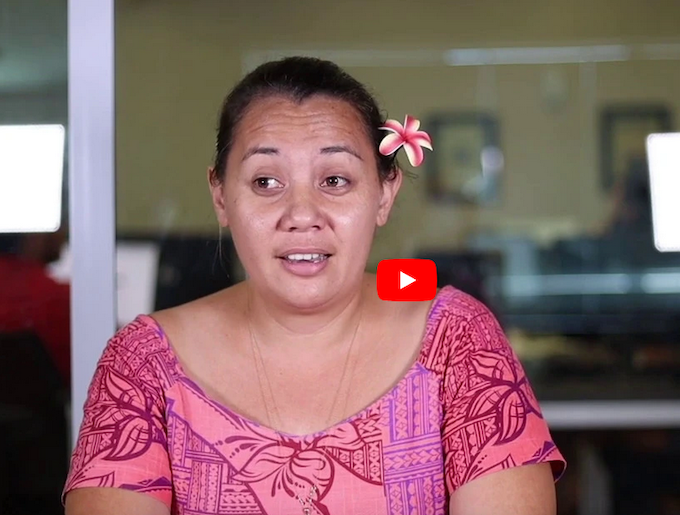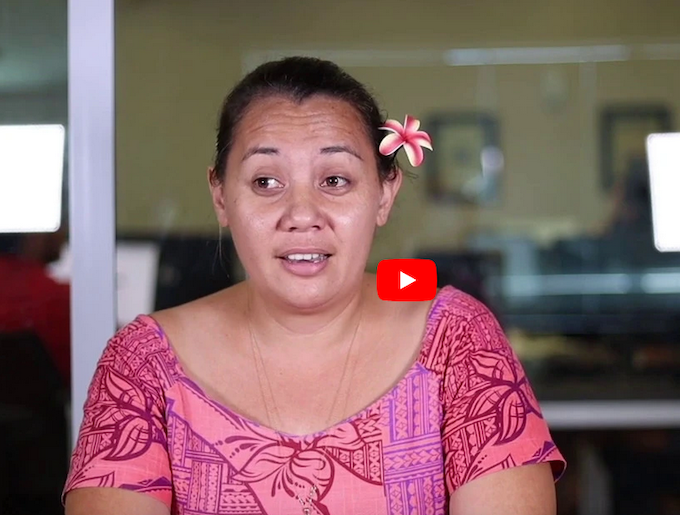
The Samoa Observer media freedom video, Journalism Without Fear or Favour.
By Sri Krishnamurthi, contributing editor of Pacific Media Watch
Papua New Guinea’s two daily newspapers – the PNG Post-Courier and The National – which dominate the market, demonstrated “overwhelming deference” to the office of former Prime Minister Peter O’Neill, says a new report about the country’s media freedom.
Transparency International Papua New Guinea (TIPNG) released a preliminary statement from a research report on World Press Freedom Day last Sunday, saying it found “much wrong” with the PNG media.
The full report, which says public trust in the media is eroding, will be available later in the year.
READ MORE: Pacific governments accused of using coronavirus crisis as cover for media crackdown
The global WPFD20 theme this year was “Journalism Without Fear or Favour” and the Transparency International statement featured media trends in Papua New Guinea and the issue of bias in reporting on governance issues among print media.
– Partner –
Analysing a period from June 2017 to August 2018, the report examines the balance of coverage on governance issues in particular.
“The threats to PNG’s media freedom are most obvious when it comes to major national events that require objective reporting in the public interest,” the statement said.
Hampered by other interests
“Recent instances where the ability of the media to report have been hampered by other interests (often political) include:
- the 2017 national election;
- the 2018 APEC Leaders Summit;
- the 2019 Political Transition [after the ousting of O’Neill and the formation of a new government led by current Prime Minister James Marape]; and
- the 2020 Covid-19 coronavirus pandemic public spending.
“Journalists in PNG are further disadvantaged by the lack of Right to Information (RTI) legislation to enable them to obtain public documents from the state.” the statement added.
“In the absence of a RTI law in PNG the media outlets are further beholden to political interests as sources of information – which further erodes public trust in news outlets.”
Transparency International also said: “While PNG has enjoyed a relatively free media, this has been under threat in recent years. For instance, the 2020 Reporters Without Borders (RSF) World Press Freedom Index assessed PNG to have a press whose independence is ‘endangered’, with a corresponding drop of eight places in rank since last year,” the report said.
“Interestingly one of the reasons cited by RSF for the diminished ranking is that journalists nonetheless continue to be dependent on the concerns of those who own their media.”
‘Crisis on multiple fronts’
Commenting on the report, Scott Waide, the Lae bureau chief of EMTV News, told Pacific Media Watch “what we have here is a crisis on multiple fronts“.
“Debate is stifled, journalists are threatened, abused and ridiculed, editors, CEOs and board members are put under pressure – you are excluded from events or deliberately not informed,” he said.
“Politicians feel invincible because of the image we reinforce in the media. They want us to report the facts but not report the why and how. They avoid live debates, or live interviews, unless they feel they have some control over them.
“They avoid interviews unless you push them into a corner, if they cannot fully control them, they will influence them.”
Waide said he had given lectures on the misgiving of the PNG media which become beset with many problems.
“Politicians are put on a pedestal and adored, corruption is normalised and legalised. Politicians feel that government policy should not be questioned, and critical thinking is largely absent in public debate.”
The problems stemmed from the overall decline in the quality of training at universities where students took journalism as second or third choice.
‘A constant void’
“As well as the steady exit of senior journalists, taking with them years of accumulated institutional knowledge, younger journalists leave after an average of five years, there is always a constant void that needs filling in newsrooms and the absence of critical debate driven by the media,” he said.
He pointed out there was a general absence of proactive action to question, analyse and explain bad government decisions, and fact checking of political statements was non-existent.
The Transparency International report said: “To reach its potential, however, professional and ethical journalism standards need to be raised in the face of increasing political pressures.”
However, Waide was forthright in his assessment: “The solution is cross-sectoral and can’t be done only by media organisations.”
Meanwhile, in Samoa similar problems were expressed by Samoa Observer editors and reporters of not being informed of press conferences by the government.
The newspaper, one of the region’s leading advocates of media freedom, produced a video on social media speaking about the virtues of media on World Press Freedom Day.
“You are talking about giving the media the ability to go out there and reach out to the masses, give them a voice, give them the ability to reach out to the leaders of this country, give them an opportunity to tell them this what you should do,” said co-editor Alexander Rheeney, who is also a former editor of the Post-Courier in Port Moresby.
Samoa media ‘encroachments’
His co-editor, James Robertson, said: “There regular updates on this coronavirus situation in Samoa to which we are not invited, there are regular press conferences by the prime minister to which we are not allowed to send reporters to ask questions.”
“And these are significant encroachments of press freedom in Samoa,” he said.
Rheeney was more philosophical, asking the reporters not to take their jobs for granted.
“I asked them not to clock-in in the morning and clock-out in the evening Monday to Friday without thinking about their work as reporters, and the power they have in their hands to change the lives of ordinary Samoans for the better and to influence government policy decisions for the benefit of the people,” he told Pacific Media Watch.
“There is a big difference between working for a daily newspaper that publishes ordinary news stories Monday to Friday without thinking about the ‘big picture issues’, unlike at the Samoa Observer where we urge our reporters to think outside the box.
“We strive to get our reporters to tell the bigger story and not just focus on news that gets fed from the Prime Minister’s Facebook livestream or at a press conference where the questions that matter don’t normally get asked,” he said.
Article by AsiaPacificReport.nz








